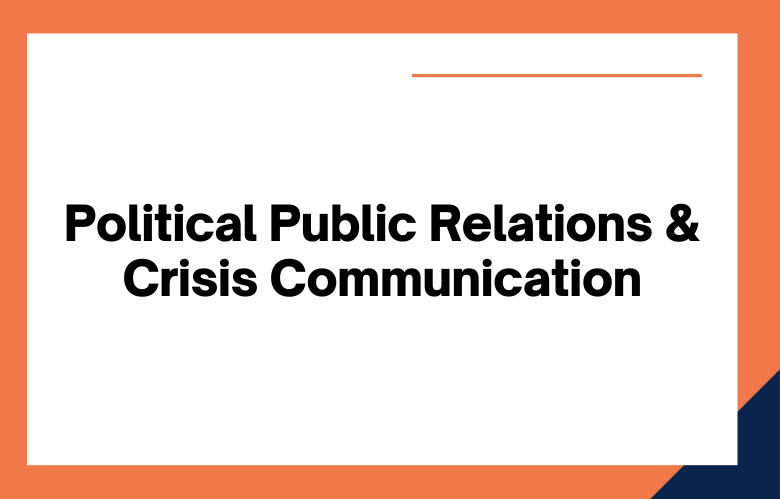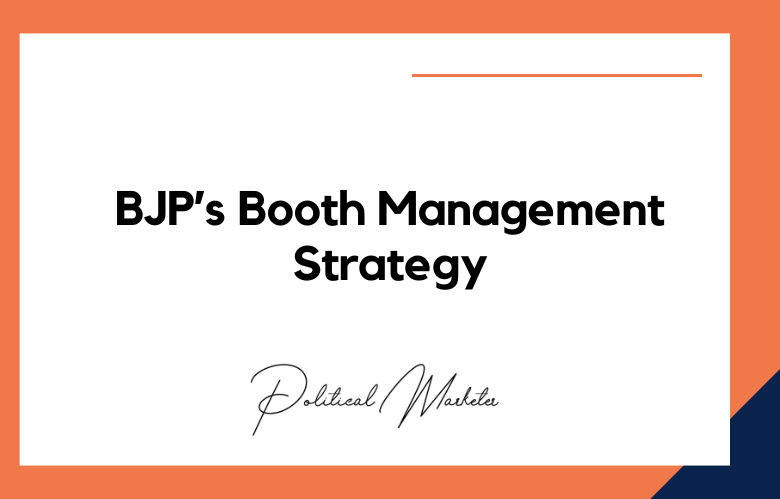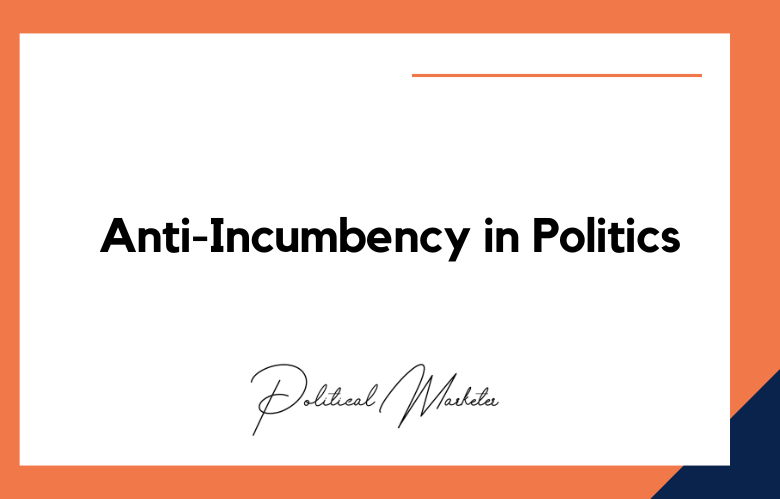Crisis communication is one of the most critical aspects of effective political public relations. To protect your image and prevent any long-term damage, it’s essential to understand the best practices for managing a crisis. We will explore critical things to remember when facing a PR emergency.
Crisis communication considers one of the most challenging aspects of political public relations. However, if done correctly, it can be a powerful tool for building trust and shaping public opinion. We will discuss some best practices for political public relations crisis communication.
We will also look at examples of using crisis communication effectively to build trust with the public.
Public relations are critical to any political campaign, and crisis communication is crucial to effective PR. We’ll discuss some best practices for political public relations and crisis communication. We’ll also look at recent examples of how both can use in politics.
So, whether you’re a politician running for office or professional communications working on a political campaign, read on for tips on managing your PR and crises effectively!
What is Political Public Relations?
Public relations professionals work to advance their client’s interests, including political candidates, elected officials, and government agencies. They develop and execute strategies to build relationships with key audiences, promote positive messages, and manage negative perceptions.
In the political arena, they work to influence public opinion and shape policy debates.
Whether working for a candidate or officeholder, coordinating a media campaign, organizing a grass-roots advocacy effort, or communicating with government officials, political public relations practitioners use their skills and expertise to help their clients succeed.
Public relations controls the flow of information between an organization and the public. Political public relations is a specialized form of public relations that promotes the image of political parties and candidates.
It creates and maintains a good relationship between an organization or individual and the general public.
Effective political public relations require careful planning, skillful execution, and continual monitoring.
Through proactive and reactive strategies, political public relations practitioners seek to influence public opinion, manage crises, and promote favorable legislation and policies.
What is Political Crisis Communication?
In times of crisis, political organizations rely on effective communication to maintain order and promote their agendas. Crisis communication is a tool these groups use to disseminate important information and influence public opinion.
A political crisis can come in many forms. It could be an act of war, a natural disaster, or even a financial meltdown. In each of these situations, political groups need to have a way to communicate with the public. After all, how they handle a crisis often shapes public opinion of them.
There are different approaches to crisis communication, but it usually boils down to two main goals: conveying critical information to the public and influencing how the public perceives the situation.
It is managing and responding to negative publicity during a political campaign. Often, this includes damage control after a scandal or gaffe. In other cases, it may be proactive messaging in the face of an unfolding crisis.
Political crisis communication is more than spin – crafting a message that will resonate with voters and help a candidate weather the storm.
Political Crisis Communication is effectively communicating with the public during a political crisis.
It is essential to have an excellent political crisis communication plan in place to ensure that you can effectively communicate with the public and manage the crisis.
It would help to consider many factors when planning your political crisis communications, such as your audience, message, and the media.
With correct planning and execution, you can effectively communicate with the public during a political crisis and help to manage the situation.
Political crisis communication is a field of public relations that deals with managing communications during a political crisis.
The goal of political crisis communication is to minimize the negative impact of the crisis and protect the reputation of the politicians or organizations involved.
Some common strategies used in political crisis communication include damage control, crisis management, and spin doctoring.
Political Public Relations Best Practices
- Establish yourself as a conceivable source of information
- Respond to criticism promptly and effectively
- Be transparent and honest with the public
- Cooperate with journalists
- Use social media to communicate with the public
- Make sure your website is up-to-date
- Hold events and town halls to engage with constituents
- Stay up-to-date on current events
- Establish your core values and beliefs
- Create a communications plan
- Define your target audience
- Craft your key messages
- Choose the right media outlets
- Develop relationships with key reporters and editors
- Issue press releases regularly
- Hold press conferences and briefings
- Engage in social media outreach
- Create a communications plan
- Identify your target audience
- Craft your key messages
- Develop a media relations strategy
- Produce high-quality content
- Secure earned media placements
- Implement paid media campaigns
- Evaluate and optimize your efforts
- Create a media list and start building relationships
- Develop talking points and key messages
- Craft your story
- Understand the news cycle
- Respond quickly to breaking news stories
- Issue press releases and statements
- Hold briefings and provide background information
- Engage with the media on social media platforms
- Establish who you are as a political organization
- Create a communications strategy
- Identify your key audiences
- Develop messaging that resonates with those audiences
- Use the proper channels to communicate with your audiences
- Be consistent in your messaging
- Respond quickly to breaking news and events
- Evaluate your performance and make changes as needed
- Establish yourself as a credible source of information
- Respond to criticism in a timely and professional manner
- Don’t spread rumors or falsehoods
- Be transparent and open with your constituents
- Show that you care about their concerns
- Use social media to connect with voters
- Hold town hall meetings and other public events
- Make sure your website is up-to-date and easy to navigate
Political Crisis Communication Best Practices
- Establish a clear and concise message
- Keep your audience informed of any changes or updates
- Respond to questions and criticisms from the public
- Be transparent and honest with your constituents
- Avoid making assumptions or jumping to conclusions
- Take responsibility for any mistakes made during the crisis
- Show compassion for those affected by the crisis
- Stay calm and collected under pressure
- Respond quickly to breaking news
- Acknowledge when you don’t have all the answers
- Take responsibility for your actions
- Show empathy for those affected by the crisis
- Be transparent and honest with your constituents
- Keep your supporters up-to-date on developments
- Avoid speculation and rumor-mongering
- Establish a delicate chain of command
- Keep the public informed with timely and accurate information
- Cooperate with government officials and emergency responders
- Avoid speculation and rumor-mongering
- Show compassion for those affected by the crisis
- Maintain transparency throughout the process
- Establish a clear and concise message
- Keep your messaging consistent across all platforms
- Respond to inquiries as quickly as possible
- Show empathy and understanding for those affected
- Use social media to share information and updates
- Avoid speculation and rumor-mongering
- Cooperate with the media and other government agencies
- Thank those who offer support
- Establish who is in charge of communication within the organization
- Appoint a spokesperson to speak on behalf of the organization
- Draft a crisis communication plan and have it approved by all stakeholders
- Determine what type of communication is most appropriate in this situation
- Communicate early, often, and truthfully
- Show compassion for those affected by the crisis
- Take responsibility for the problem and apologize where necessary
- Be transparent and share as much information as possible
- Establish a clear and consistent message
- Respond quickly to inquiries and criticism
- Acknowledge your mistakes and take responsibility
- Show empathy for those affected by the crisis
- Use social media to communicate with the public
- Keep your messaging honest and transparent
- Don’t try to hide information from the public
- Cooperate with investigations
- Explain what you are doing to address the situation
- Keep your audience informed
- Thank people for their support
- Acknowledge the issue at hand
- Show concern for all people involved
- Take responsibility for any wrongdoing
- Offer solutions to the problem
- Be transparent throughout the entire process
- Keep the public updated on any new developments
- Thank everyone who has helped resolve the situation.
Conclusion
It is more important than ever for political campaigns to have a crisis communication plan. As we’ve seen, even the slightest misstep can result in a significant backlash. We have years of experience crafting successful public relations and crisis communication plans for clients in all industries.
Reach us today to learn how we can help your campaign stay on track during these challenging times.
One way to get in touch is by filling out our online form on this site or give us a call at
+91 9848321284. Let’s work together today!











